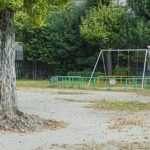Are you a Seattle resident looking to grow your own vegetables but lack the space for a traditional garden? Container gardening in Seattle is the perfect solution for urban dwellers who want to enjoy homegrown produce without needing a backyard.
Whether you live in an apartment or have limited outdoor space, this method allows you to cultivate your favorite vegetables with ease. In this article, we will explore the ins and outs of container gardening in Seattle, from choosing the right vegetables to understanding the importance of watering and drainage in Seattle’s climate.
Seattle’s unique climate and urban landscape present both opportunities and challenges for vegetable container gardening. With the right guidance, however, you can successfully grow a variety of vegetables right on your balcony or patio.
We will discuss how to select the best containers for urban gardening, along with soil and fertilization tips that are essential for healthy plant growth. Additionally, we’ll delve into best practices for sunlight and temperature control, as well as pest and disease management strategies specific to urban vegetable gardens in Seattle.
In addition to practical tips for successful container gardening, we will also touch on community resources and support available to aspiring gardening enthusiasts in Seattle. From local workshops to online forums, there are numerous ways to connect with like-minded individuals and gain valuable insights into nurturing your container garden.
So, whether you’re new to gardening or a seasoned enthusiast looking to adapt your skills to an urban environment, this article is here to help you make the most of vegetable container gardening in Seattle.
Choosing the Right Vegetables for Container Gardening in Seattle
When it comes to choosing the right vegetables for container gardening in Seattle, it’s essential to select varieties that are suitable for the Pacific Northwest climate and that thrive in a container environment. Here are some vegetable options that are well-suited for growing in containers in Seattle:
- Tomatoes: There are many compact and determinate tomato varieties that do well in containers, such as Patio, Tiny Tim, or Tumbling Tom.
- Peppers: Bell peppers and chili peppers can be successfully grown in containers, as long as they receive plenty of sunlight and warmth.
- Lettuce: Leafy greens like lettuce are perfect for container gardening and can be harvested continuously for a fresh supply of salads.
- Radishes: These fast-growing root vegetables are ideal for beginners and thrive in the small space provided by containers.
- Herbs: Cilantro, basil, parsley, and other herbs can easily be grown in containers and provide an abundant harvest throughout the growing season.
It’s important to consider the limited amount of space available when choosing vegetables for container gardening in Seattle. Opting for compact or dwarf varieties will ensure that your plants have enough room to grow and produce a bountiful harvest. Additionally, selecting vegetables that have a shorter maturity period will allow you to enjoy homegrown produce sooner.
When planning your container garden, take into account the specific needs of each vegetable variety regarding sunlight, water, and temperature. By choosing the right vegetables for your urban garden, you can create a thriving container garden full of delicious and nutritious produce.
Selecting the Best Containers for Urban Gardening
When it comes to selecting the best containers for urban gardening in Seattle, there are several factors to consider. The type of container you choose can make a significant impact on the success of your vegetable garden. Here are some tips for selecting containers suitable for urban gardening:
- Size: Ensure that your chosen containers are large enough to accommodate the mature size of the selected vegetable plants. Different vegetables have different root systems and space requirements, so be mindful of this when choosing a container size.
- Material: Consider using lightweight materials such as plastic or fiberglass for larger containers to make them easier to move if needed. Additionally, consider using breathable materials like terracotta or fabric pots to promote healthy root development through proper airflow.
- Drainage: Good drainage is crucial for successful container gardening. Look for containers with drainage holes at the bottom to prevent waterlogging and root rot. Elevating containers with pot feet or placing them on bricks can also improve drainage.
By carefully considering these factors when selecting containers for your urban vegetable garden in Seattle, you can create an ideal environment for your plants to flourish. With the right choice of containers, you can maximize yields and enjoy an abundant harvest of homegrown vegetables all season long.
Selecting the Best Containers for Urban Gardening
When it comes to container gardening in Seattle, the right containers are essential for the success of your vegetable garden. There are several factors to consider when selecting the best containers for urban gardening in this city known for its unique climate.
First and foremost, it’s important to choose containers that are large enough to accommodate the root systems of the vegetables you plan to grow. Vegetables like tomatoes, peppers, and squash require deeper containers, while herbs and lettuces can thrive in shallower pots. Additionally, consider the material of the container. In Seattle’s often damp climate, it’s important to choose containers that are made of materials that won’t deteriorate easily, such as cedar or rot-resistant plastic.
Furthermore, ensure that the containers have proper drainage holes at the bottom. Seattle’s frequent rainfall means excess water can accumulate in containers without adequate drainage, leading to root rot and other issues. Elevating the containers on pot feet or placing them on a surface that allows for drainage can also help prevent waterlogged soil.
Lastly, consider the mobility of your containers. Since Seattle experiences various weather patterns throughout the year, being able to move your vegetable containers to optimize sunlight exposure or protect them from harsh weather can be beneficial for their growth.
By selecting the right containers for your urban vegetable garden in Seattle, you will set yourself up for a successful and fruitful growing season while navigating the challenges unique to this region’s climate. With careful consideration and planning, you can create an ideal environment for growing delicious homegrown vegetables right in your own backyard or balcony through container gardening.Seattle residents who engage in container gardening find a sense of satisfaction with fresh vegetables all season long.
Soil and Fertilization Tips for Successful Vegetable Container Gardening
When it comes to container gardening in Seattle, choosing the right soil and fertilization is essential for the success of your vegetable plants. The unique climate and urban environment in Seattle require special attention to ensure that your plants have the nutrients they need to thrive. Here are some tips for soil and fertilization that will help you achieve a successful vegetable container garden in Seattle:
- Choose a high-quality potting mix: When selecting soil for your vegetable containers, opt for a well-draining potting mix that is specifically formulated for container gardening. Avoid using garden soil, as it may not provide the proper drainage and aeration that container-grown vegetables require.
- Consider organic fertilizers: Organic fertilizers can be beneficial for vegetables grown in containers, as they release nutrients slowly and improve soil structure over time. Look for organic fertilizer options such as compost, fish emulsion, or seaweed-based products to nourish your plants without the risk of chemical buildup.
- Monitor nutrient levels: Because container gardening can limit the availability of nutrients to plant roots, it’s important to regularly check the nutrient levels in your soil. Consider using a liquid fertilizer or adding slow-release fertilizer pellets to ensure that your vegetable plants have access to essential nutrients throughout their growing season.
In addition to choosing the right soil and fertilization methods, it’s important to test your potting mix before planting your vegetables. Conducting a simple pH test can help you determine if any adjustments need to be made to create an optimal growing environment for your Seattle container garden.
By implementing these soil and fertilization tips, you can set the foundation for a thriving vegetable container garden in Seattle. Providing your plants with nutrient-rich soil and proper fertilization will support healthy growth and abundant harvests throughout the growing season.
Understanding the Importance of Watering and Drainage in Seattle’s Climate
When it comes to successful container gardening in Seattle, understanding the importance of watering and drainage is crucial. The climate in Seattle is known for its moderate temperatures and abundant rainfall, which can both positively and negatively impact your vegetable container garden. Therefore, it’s essential to implement proper watering and drainage strategies to ensure the health and growth of your plants.
Watering Tips
Seattle’s relatively mild climate means that you may not need to water as frequently as in drier regions. However, it’s still important to monitor the moisture level of your container garden regularly. Depending on the type of vegetables you’re growing and the size of your containers, you may need to water every 1-3 days, particularly during the warmer months. Be sure to water deeply to encourage strong root growth.
Drainage Considerations
Proper drainage is equally important for container gardening in Seattle. The city’s high annual rainfall can lead to overwatering if containers do not have adequate drainage. When choosing containers for your vegetable garden, opt for those with drainage holes at the bottom. Additionally, consider using a well-draining potting mix specifically designed for container gardening.
Rainfall Management
Despite Seattle’s reputation for rain, there are periods of drought during the summer months that can impact your vegetable container garden. To mitigate this, consider implementing a rainwater harvesting system or utilizing a drip irrigation system with a timer to ensure consistent moisture levels for your plants.
By understanding how watering and drainage can impact your container garden in Seattle’s climate, you’ll be better equipped to maintain healthy and thriving vegetables throughout the growing season.
Best Practices for Sunlight and Temperature Control in Container Gardening
When it comes to container gardening in Seattle, one of the most important factors to consider is sunlight and temperature control. The Pacific Northwest’s climate can be challenging for growing vegetables, but with the right practices, you can successfully cultivate a thriving urban garden.
First and foremost, it’s essential to understand the specific sunlight needs of the vegetables you plan to grow. Some crops, such as tomatoes and peppers, require full sun for at least 6-8 hours a day. On the other hand, leafy greens like lettuce and spinach can thrive in partial shade. Take note of the sun patterns in your outdoor space and strategically place your containers to ensure adequate sunlight for your plants.
In addition to sunlight, temperature control is crucial for successful vegetable container gardening in Seattle. As the weather can be quite unpredictable, especially during the spring and fall seasons, it’s important to monitor temperature fluctuations. Consider using insulating materials or protective coverings for your containers during cooler nights or investing in shade cloth to shield your plants from excessive heat during hot summer days.
Furthermore, be mindful of microclimates within your urban garden space. Certain areas may experience warmer or cooler temperatures due to proximity to buildings, reflective surfaces, or natural wind patterns. By understanding these microclimates, you can strategically place your containers to optimize temperature conditions for your vegetable plants.
By implementing these best practices for sunlight and temperature control, you can maximize the growth and health of your vegetables in container gardening seattle vegetable.
Pests and Disease Management in Urban Vegetable Gardens
Identifying Common Pests and Diseases
When it comes to container gardening in Seattle, dealing with pests and diseases is an inevitable challenge. Some common pests that urban gardeners might encounter include aphids, caterpillars, and slugs, while diseases such as powdery mildew and blight can also affect vegetable plants. It’s important to be able to identify these pests and diseases early on in order to take effective action.
Natural Pest Control Methods
One of the best approaches to pest management in urban vegetable gardens is the use of natural and organic methods. For example, introducing beneficial insects like ladybugs or lacewings can help control aphid populations. Additionally, using companion planting techniques can help repel certain pests or attract natural predators to keep pest populations in check.
Disease Prevention Strategies
Preventing diseases from affecting your container-grown vegetables is crucial for a successful harvest. One way to minimize the risk of disease is to avoid overwatering, as excess moisture can create favorable conditions for fungal growth. Proper spacing between plants can also improve air circulation and reduce the spread of diseases. Furthermore, regularly inspecting your plants for any signs of illness or distress can help catch potential issues early on before they become more serious.
By employing proactive measures for pest and disease management in your urban vegetable garden, you’ll be better equipped to enjoy a bountiful harvest of homegrown produce right from your own container garden in Seattle’s urban landscape.
Tips for Harvesting and Enjoying Your Homegrown Seattle Vegetables
Container gardening in Seattle is a great way to grow your own vegetables, even if you don’t have a traditional garden space. Once you’ve put in the hard work of selecting the right vegetables, choosing containers, and caring for your plants, it’s time to enjoy the fruits of your labor. Here are some tips for harvesting and enjoying your homegrown Seattle vegetables.
First, it’s important to harvest your vegetables at the right time to ensure they are at their peak flavor and freshness. This often means picking them when they are still small or just reaching maturity. For example, tomatoes should be harvested when they are fully colored but still firm, while lettuce can be picked when the leaves are young and tender.
Once you’ve harvested your vegetables, it’s time to enjoy them. There’s nothing quite like the taste of freshly picked produce, so be sure to incorporate your homegrown vegetables into your meals as soon as possible. Whether you’re making a salad with crisp lettuce and juicy tomatoes or adding fresh herbs to your favorite recipes, savoring the flavors of your container garden is one of the best parts of urban vegetable gardening in Seattle.
Finally, consider sharing your homegrown produce with friends, family, or neighbors. Not only does this spread the joy of gardening, but it also fosters a sense of community around locally grown food. And if you find yourself with an abundance of vegetables, consider preserving them through canning or freezing so you can continue to enjoy them long after the growing season has ended.
| Tips for Harvesting | Enjoying Your Homegrown Seattle Vegetables |
|---|---|
| Harvest at peak flavor and freshness | Incorporate into meals as soon as possible |
| Share with others | Consider preserving excess produce |
Community Resources and Support for Container Gardening Enthusiasts in Seattle
In conclusion, container gardening in Seattle offers a wonderful opportunity for urban dwellers to grow their own vegetables and herbs, even in limited outdoor spaces. By carefully choosing the right vegetables and containers, paying attention to soil and fertilization, and understanding the unique climate considerations of the region, residents can successfully maintain their own thriving urban vegetable gardens.
As Seattle’s climate can be challenging for gardening, proper watering and drainage are crucial for the success of any container garden. It is important to also manage sunlight and temperature control effectively to prevent damage to plants. Additionally, being proactive about pests and diseases will help ensure a healthy yield of homegrown vegetables.
Lastly, it’s also worth noting that there are numerous resources and community support available for those interested in container gardening in Seattle. From local gardening clubs to online forums and community gardens, enthusiasts are sure to find ample opportunities for learning and sharing experiences with fellow urban gardeners. With dedication and the right guidance, anyone can enjoy the satisfaction of growing their own fresh produce right at home in Seattle.
Frequently Asked Questions
What Vegetables Grow Well in Seattle?
Seattle’s climate is suitable for growing a variety of vegetables, including lettuce, kale, spinach, carrots, beets, radishes, and peas. These cool-season crops thrive in the mild and moist conditions of the Pacific Northwest.
What Veg Is Best for Container Gardening?
When it comes to container gardening, compact and shallow-rooted vegetables like peppers, tomatoes, lettuce, spinach, and radishes are ideal choices. These vegetables can be easily grown in pots or containers on patios, balconies, or windowsills.
What Vegetables Grow Well Together in a Container?
Certain combinations of vegetables grow well together in a container due to their complementary needs or growth habits. For example, planting tall-growing plants like tomatoes or trellised cucumbers with low-growing ones like lettuce or herbs can maximize space and create a more productive container garden.
Additionally, pairing herbs with vegetables such as basil with tomatoes can also enhance growth and flavors.

If you’re looking to get into vegetable gardening, or are just looking for some tips on how to make your current garden better, then you’ve come to the right place! My name is Ethel and I have been gardening for years. In this blog, I’m going to share with you some of my best tips on how to create a successful vegetable garden.





